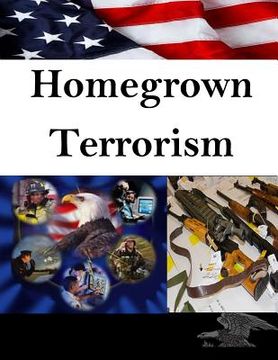Reseña del libro "Homegrown Terrorism (en Inglés)"
Terrorism and democracy make an interesting dichotomy. Political rhetoric from recent and present world leaders link the spread of a strong democracy with a decline in the number of areas that are capable of producing and harboring terrorists. George W. Bush stated in his inaugural address that "The survival of liberty in our land increasingly depends on the success of liberty in other lands. The best hope for peace in our world is the expansion of freedom in all the world. . . . So it is the policy of the United States to seek and support the growth of democratic movements and institutions in every nation and culture, with the ultimate goal of ending tyranny in our world" (Bush 2005).Totalitarian regimes are often characterized by their lack of terrorism, and if they do encounter terrorist acts their laws and system of government often allow them to expend great resources without needing to consider the rule of law, or basic human rights to seek out the perpetrators. The Nazi regime, the KGB, Iraqi secret police, and more recently the military junta in Burma have all been successful in finding, publicly punishing, and suppressing terrorist acts within their borders (Lutz and Lutz 2010).Terrorism is not a new phenomenon but for many people it was only recognized when the two airplanes crashed into the World Trade Center in New York on 11 September 2001. This act of terrorism, committed by the terror group Al Qaeda, saw the beginning of the Global War on Terror. Al Qaeda is based in the Islamic religion, and when coupled with the subsequent wars in the Islamic countries of Iraq and Afghanistan, lead many people to identify terrorism with the Islamic faith. Recent history, expeditionary conflicts, and friendly military deaths have kept the public focused on Islamic religion based terrorism.While populations and governments of Western democracies have been focused on fighting terrorists in other countries and building security measures around their own countries, to prevent the people they are fighting from committing another 11 September style attack, there have been incidents of birth right or homegrown citizens adopting terrorist tactics to attempt to influence, change, or collapse the government from within the state. This study will present three case studies to highlight the threat from citizens adopting terrorist tactics within the state, and how some of the rights of the citizens within that state can assist a homegrown terrorist in hiding their true aims and objectives, while preventing law enforcement from detecting possible threats until it is too late.The first case study will be that of the little known cult, Aum Shinrikyo and its leader Shoko Asahara. In 1995 it announced itself by killing 12 people and injuring thousands by releasing Sarin nerve agent into the Tokyo subway system. This organization was not based on Islam, nor did it arise in the Middle East. It did, however, use terror as a method of spreading its message. While much of the focus is on the organization itself, its actions and the associated consequences, its leader, like Osama Bin Laden, Aymen Al-Zawahiri, and Muqtada al-Sadr, is portrayed as the primary driver behind the terrorist act. Asahara "spent much of his pre-adult life in a state-run boarding school for the blind. His feelings of abandonment by his family, discrimination because of his blindness, and later failure to enter a university left him with permanent feelings of rejection, frustration, and resentment" (Bromley and Melton 2002, 192).

